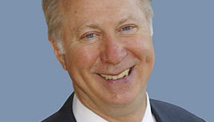What is Obama's endgame in Libya?

Cambridge, Massachusetts (CNN) -- After conversations with top players in Washington last week, mostly as I accompanied a group of Zuckerman Fellows from Harvard on a field trip, here are some brief reflections on the mood there toward events in the Middle East:
• The head-snapping change in policy toward Libya has everyone guessing where the Mideast is heading, whether the U.S. has a good handle, and most of all, what President Obama is trying to achieve.
• One irony, as a female friend put it, is that for years many of us believed that if only more women could gain power, the world would surely become more peaceful. Yet, we now see that the three people who talked Obama into using force against Libya's Moammar Gadhafi were all women -- Hillary Clinton, Susan Rice and Samantha Power. Leading male advisers were opposed. Perhaps we should be less surprised than we are. Remember Margaret Thatcher? And Golda Meir? And remember, too, that both were seen as successful leaders for most of their time in office.
• There are divisions in Washington about the president's actions, but most -- including me -- believe Hillary & Co. had the better argument. If anything, the U.S. delayed too long, allowing Gadhafi to gain the upper hand on the ground.
• But what is the president's endgame in Libya? And what is his strategy for the Middle East more generally? Who can say for sure?
• Originally, the president kept saying we want Gadhafi out -- but now that we are using force, he says we only want to stop him from killing more civilians. Is this mission creep in reverse? And how tough would we be if, as seemed possible today, the Arab League begins to retreat from supporting force?
• Meanwhile, the administration privately -- and rightly -- stresses that even as we hit Libya, we must keep a strategic focus on Egypt and Saudi Arabia, long seen as our most powerful Arab friends in the region. The preliminary returns from weekend voting in Egypt -- we are still waiting to hear from Cairo -- will bring some heartburn in Washington. How big a threat will the Muslim Brotherhood now become in elections a few months from now and what can Washington do about it?
• Even bigger headaches are arising in the U.S.-Saudi relationship. Several top players from past administrations report that the Saudis are hugely angry about Obama's treatment of Egypt's ex-President Hosni Mubarak. "He was your best friend in the region for more than 30 years, doing everything you asked," the Saudi argument goes, "but a week after he got into trouble, you threw him under the bus rather than working out a graceful exit. How can we now trust you?"
• The Obama administration is now working to rebuild Saudi ties, but will it have sufficient leverage to help usher in more democratic reforms in the kingdom and, crucially at the moment, in nearby Bahrain and Yemen? Or, as seems likely, will we be caught in increasing contradictions between our policy in Libya (crack down on an enemy government that kills demonstrators) vs. Bahrain and Yemen (go easy on a friendly government that kills demonstrators)?
• Peering into the uncertainties of the future, most observers in Washington feel they understand Defense Secretary Gates as well as Secretary Clinton. Both command respect. The president's National Security Council adviser, Tom Donilon, is less well-known, but many from his past, including me, know him to be a smart, savvy player who is a quick learner and can make things happen.
• The big question mark is the president himself. Rebounding from his electoral defeats last November, he seemed to be asserting a much firmer grasp on power, but in recent weeks, he appears to outsiders as someone who has slipped back into a haze of caution. The Economist this week is even questioning his political courage. As he sends U.S. troops into harm's way, many in Washington are now waiting to see which Obama now emerges. Much rides on the outcome.
No comments:
Post a Comment